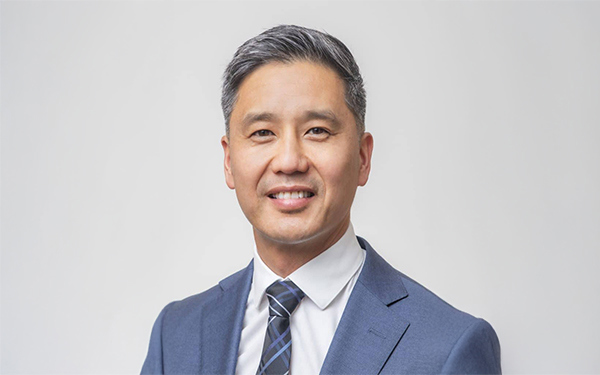Biography
A/Prof Hien Le brings a holistic, evidence-based approach to his practice. As a passionate advocate for cutting-edge cancer therapies and innovative radiation therapy technology, he is dedicated to delivering comprehensive and patient-centred care.
A/Prof Hien Le is an experienced radiation oncologist who consults at multiple Icon Cancer Centre locations across South Australia including Windsor Gardens, Adelaide (Kurralta Park) and Noarlunga. He provides treatment services at Windsor Gardens and Noarlunga.
In 2003, he completed his Bachelor of Medicine, Bachelor of Surgery (MBBS) at the University of Adelaide and undertook specialist radiation oncology training and a clinical fellowship at the Royal Adelaide Hospital (RAH). In 2011, A/Prof Le became a fellow of the Royal Australian and New Zealand College of Radiologists (RANZCR) and received the RANZCR Windeyer Fellowship award. He completed his Windeyer clinical oncology fellowship at Mount Vernon Cancer Centre in the United Kingdom, where he gained extensive experience in CyberKnife and MRI-guided brachytherapy techniques. A/Prof Le subsequently received the RANZCR College Thomas Baker award, travelling to Massachusetts General Hospital in the United States to further his knowledge and understanding of proton beam therapy.
A/Prof Le enjoys a mixture of clinical work, contributing to leading national and international publications and conferences, and attending regular multidisciplinary meetings with his medical community colleagues. He is a radiation oncology staff specialist at RAH and was the first in South Australia to treat a patient with stereotactic ablative body radiation therapy (SABR). A/Prof Le is the chair of the South Australian neuro-oncology multidisciplinary meeting and a supervisor for Masters and PhD students investigating the management and biology of cancers. His commitment to cancer research is reflected in his roles as Head of Research in the Department of Radiation Oncology at RAH and Adjunct Associate Professor at the University of South Australia. A/Prof Le also continues to play a key role in the Australian Bragg Centre for Proton Therapy and Research team’s proton-photon comparative planning services.
As an active member of the Trans Tasman Radiation Oncology Group (TROG) and several leading cancer trial groups, A/Prof Le is lead principal investigator of several open clinical trials across different cancer types. In 2020, he was appointed chair of the TROG Particle Therapy Special Interest Group. He has been awarded a number of research grants including the Australian Research Data Commons platform grant (2020) and Medical Research Future Fund grant for the MASTERPLAN clinical trial (2018).
A/Prof Le speaks fluent English and Vietnamese, and looks forward to caring for patients and their loved ones in their preferred language. His clinical experience covers a broad range of solid tumour malignancies, with a special interest in brain and spinal (CNS) cancer, head and neck cancer, liver cancer, lung cancer and pancreatic cancer.
Publications
Nichols AC, Theurer J, Prisman E, Read N, Berthelet E, Tran E, Fung K, de Almeida JR, Bayley A, Goldstein DP, Le H, Hier M. Randomized Trial of Radiotherapy Versus Transoral Robotic Surgery for Oropharyngeal Squamous Cell Carcinoma: Long-Term Results of the ORATOR Trial. Journal of Clinical Oncology. 2022 Jan:JCO-21.
Oar A, Lee M, Le H, Wilson K, Aiken C, Chantrill L, Simes J, Nguyen N, Barbour A, Samra J, Sjoquist KM. AGITG MASTERPLAN: a randomised phase II study of modified FOLFIRINOX alone or in combination with stereotactic body radiotherapy for patients with high-risk and locally advanced pancreatic cancer. BMC cancer. 2021 Dec;21(1):1-1.
Siva S, Bressel M, Mai T, Le H, Vinod S, de Silva H, Macdonald S, Skala M, Hardcastle N, Rezo A, Pryor D. Single-Fraction vs Multifraction Stereotactic Ablative Body Radiotherapy for Pulmonary Oligometastases (SAFRON II): The Trans Tasman Radiation Oncology Group 13.01 Phase 2 Randomized Clinical Trial. JAMA Oncology. 2021 Aug 29.
Ball, D., Mai, G. T., Vinod, S., Babington, S., Ruben, J., Kron, T., … & Le, H. (2019). Stereotactic ablative radiotherapy versus standard radiotherapy in stage 1 non-small-cell lung cancer (TROG 09.02 CHISEL): a phase 3, open-label, randomised controlled trial. The Lancet Oncology, 20(4), 494-503.
Nichols A, Theurer J, Prisman E, Read N, Berthelet E, Tran E, Fung K, de Almeida J, Bayley A, Goldstein D, Hier M, Sultanem K, Richardson K, Mlynarek A, Krishnan S, Le H, Yoo, J, MacNeil D, Winquist E, Hammond A, Venkatesan V, Kuruvilla S, Warner A, Mitchell S, Chen J, Corsten M, Johnson-Obaseki S, Eapen L, Odell M, Parker C, Wehrli B, Kwan K, Palma D. Radiotherapy versus transoral robotic surgery and neck dissection for oropharyngeal squamous cell carcinoma (ORATOR): an open-label, phase 2, randomised trial. The Lancet Oncology. 2019 Aug 12.

